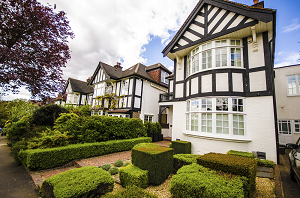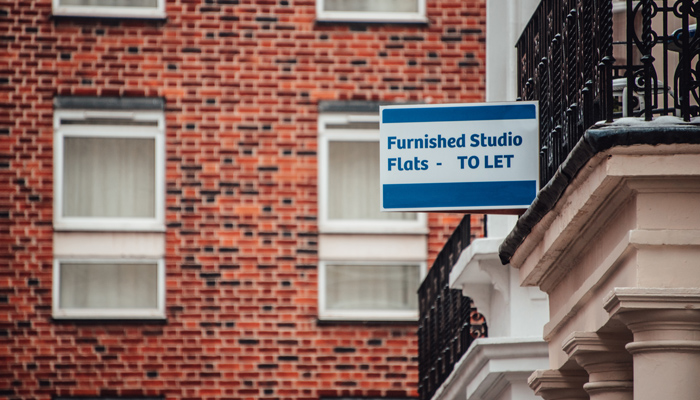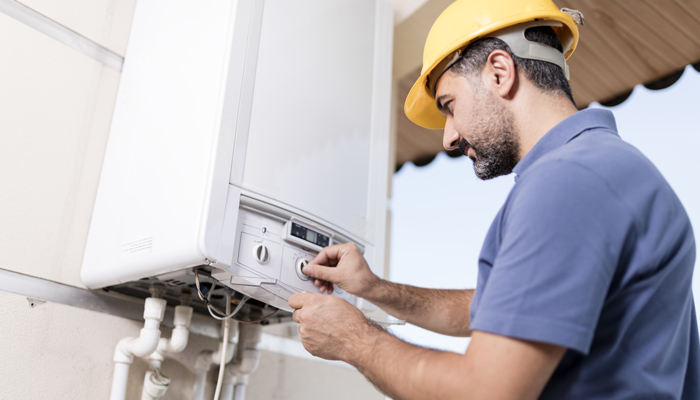How to Rent Out Your House
Thinking of letting out your property? Read our guide for help when considering your landlord responsibilities and the long-term care of your house before you put it on the market.
There are a number of reasons to rent out your house. Maybe you’re relocating due to work, or you’re moving in with someone else, or you’ve saved up enough to trade up or rent a bigger house. Whatever your reason, letting out your property is a great way to earn some supplementary income.
However, before you begin advertising your property, it’s important to understand all of your responsibilities as a new landlord. Make sure you:
- Write up a tenancy agreement.
- Check if you need a licence.
- Ensure the safety of your house.
- Provide an Energy Performance Certificate for your property.
- Protect your tenant’s deposit in a tenancy deposit scheme.
- Check that your tenant has the right to rent your property.
- Decide if you'd like your tenant to have a guarantor.
- Understand how to pay tax on rental income.
- Give your tenant a copy of the How to Rent checklist.
Tenancy agreement
A tenancy agreement clearly describes rental fees and rules for letting (e.g. “no smoking,” etc...), which offers you some protection if they ever decide not to pay or if they break the terms of your agreement. On the flip side, this document also assures your tenant that their housing is well-maintained, that their deposit is protected, and that their rent won’t suddenly increase.
You’re legally obliged to provide your tenant with the main terms of their tenancy, in writing, within six months of them taking residence anyway. So, a tenancy agreement simply satisfies that condition and ensures that there are no misunderstandings between you and your tenant.
Ensure that both you and your tenant have signed copies of this agreement prior to tenancy.
You can download sample tenancy agreement forms on GOV.UK.
Landlord licensing requirements
In order to rent out your property you may need to apply for a licence. All four countries in the UK have different policies and regulations regarding licensing so it is very important to conduct thorough research into the requirements in your particular area. In some countries, the landlords themselves must be licensed and in others it is the property that must be licensed, or for some it’s both.
In England specifically, there are two licences that you may need to consider: HMO licences and selective licences.
- HMO licences refer to ‘houses in multiple occupation’. This is usually properties where three or more unrelated tenants share communal facilities such as a kitchen or bathroom.
- Selective licences can be required for single-family dwellings in specific scheme areas.
Reach out to your local council to establish which licences will be required from you.
House safety
Before renting out your house, you are legally required to ensure that your house is well-maintained and fit for habitation. This includes:
- Fire safety - You are responsible for fitting and testing all the required smoke alarms and carbon monoxide alarms in your house.
- Gas and electrical safety - All gas and electrical installations and appliances in your house need to be well-maintained. You need to commission safety checks at least once every twelve months from an expert registered at the Gas Safe Register. Both you and your tenant should have records of these visits.
- Property repairs - Major structural and exterior repairs of a property are your responsibility. This includes maintenance needed on the walls, floors, roof, windows, piping, plumbing, wiring, and internal heating.
- Health and safety inspections - While not a legal requirement, a Housing Health and Safety Rating System (HHSRS) will help you find and fix any critical issues before your tenant moves in.
Energy performance certificate
You must order an Energy Performance Certificate (EPC) before you begin advertising your property to potential tenants. The EPC rates the energy efficiency of your property and is valid for 10 years. Failing to show a potential tenant your house’s EPC may result in a fine.
Deposit Protection Scheme
Within 30 days of receiving your tenant’s deposit, you’re responsible for safeguarding it within a government-backed deposit protection scheme. You also need to provide your tenant with information about the scheme and their rights, including:
- Details about the deposit (including amount, property address, protection info, etc.)
- Conditions for release.
- How to resolve disputes.
- Contact details for all parties involved.
For more information on deposit protection schemes, visit our guide to the certificates landlords need to provide.
Right to rent
Before the start of a new tenancy, you have to verify that your tenant can legally rent from you. If you rent to someone who isn't legally allowed to rent property in the UK, you can be fined up to £3,000. You must check all new tenants—it’s illegal to check selectively based on race, sex, religion, or sexuality.
To make a check:
- Check the tenant’s documents and ensure that they have the right to rent in the UK.
- Verify that the documents are genuine.
- Make and keep copies of their documents, including the date you made the check.
Guarantor
As a landlord if you are concerned about your potential tenant (applicants)’s financial situation you can ask your them to provide a guarantor before you offer tenancy. Some of the circumstances that may persuade you to request your potential tenant(applicant) for a guarantor include:
- The applicant has a poor, or no, credit history in the UK
- The applicant is a student or renting for the first time
- The applicant is unemployed or has a low income
- The applicant has moved to the UK from oversea
A guarantor agrees to pay you rent or fulfil any particular obligations on behalf of your tenant if they don't cannot do this themselves. The guarantor signs an agreement which confirms their responsibilities to pay you and the when they have to pay.
Guarantors are usually a relative or close friend of the tenant, but they don't have to be. Guarantors usually need a good credit history and income or savings above a certain amount. As a landlord, you can carry out a credit check on the guarantor for proof of their income, savings or other financial details.
Tax on rental income
As a landlord, one of your responsibilities is paying your income tax on your rental property. You’ll need to calculate your rental profit by deducting your allowable expenses from your rental income, and then report your gain or loss on your Self Assessment tax return.
You may also need Class 2 National Insurance if your sole business is renting out and managing property.
For more information, visit our guide to paying tax on rental income.
How to rent guide
You also need to provide your tenants with a copy of The Department for Communities and Local Government’s How to Rent guide. You may find its tips useful too!
Long term care of your property
Many small deeds will go a long way towards preserving the condition of your house and helping it appeal to potential tenants. Before you let your home, consider:

- Double-checking all appliances to ensure that they’re in good working order.
- Applying a fresh coat of paint to the walls.
- Making small repairs (e.g. fixing squeaky floorboards, etc.)
- Touch up the caulking around tubs and sinks.
- Assessing the carpets and floors and replacing them if necessary.
- Removing valuable and fragile property if you’re providing furnishings.
Landlords insurance from Towergate
As a landlord, you need to make sure you are looking after your investment so it's key to have the right building and contents (if applicable) insurance in place. Landlord insurance covers you against unpredictable events, like vandalism, fire or flood. It also insures you against claims should tenants injure themselves on your property and you're found to be at fault.
At Towergate, we provide landlord insurance for a wide range of properties and tenants including multi occupancy, students, local authority placements, unoccupied and much more. See our landlord insurance page or call 0333 060 0915 for more.
Note: Every effort has been made to ensure the above information is correct at the time of this article going online, however, we recommend that you seek professional advice if required.
This is a marketing article by Towergate Insurance.
About the author
 Alison Wild BCom (Hons), FMAAT, MATT, Taxation Technician is a highly respected industry professional who has been working with and advising SMEs in areas including tax, pensions, insurance and marketing for over 25 years. She is a member of the Association of Accounting Technicians (AAT) and Association of Tax Technicians (ATT) and also has over 20 years' experience as a residential landlord.
Alison Wild BCom (Hons), FMAAT, MATT, Taxation Technician is a highly respected industry professional who has been working with and advising SMEs in areas including tax, pensions, insurance and marketing for over 25 years. She is a member of the Association of Accounting Technicians (AAT) and Association of Tax Technicians (ATT) and also has over 20 years' experience as a residential landlord.
Date: September 22, 2023
Category: Landlords












